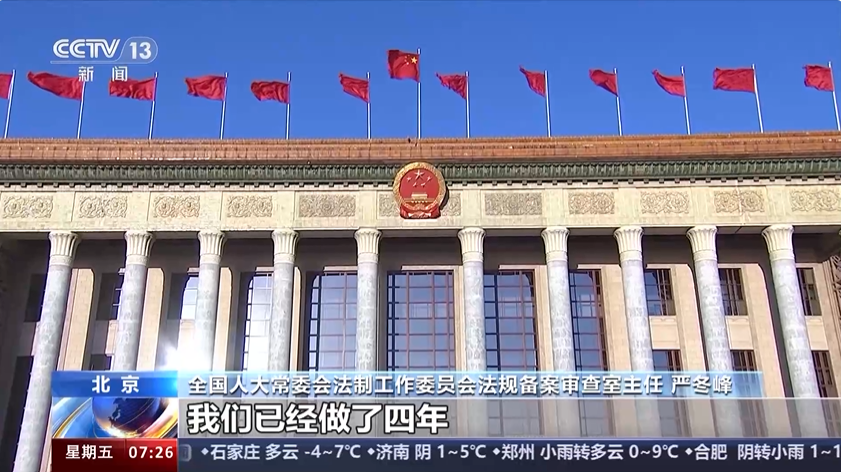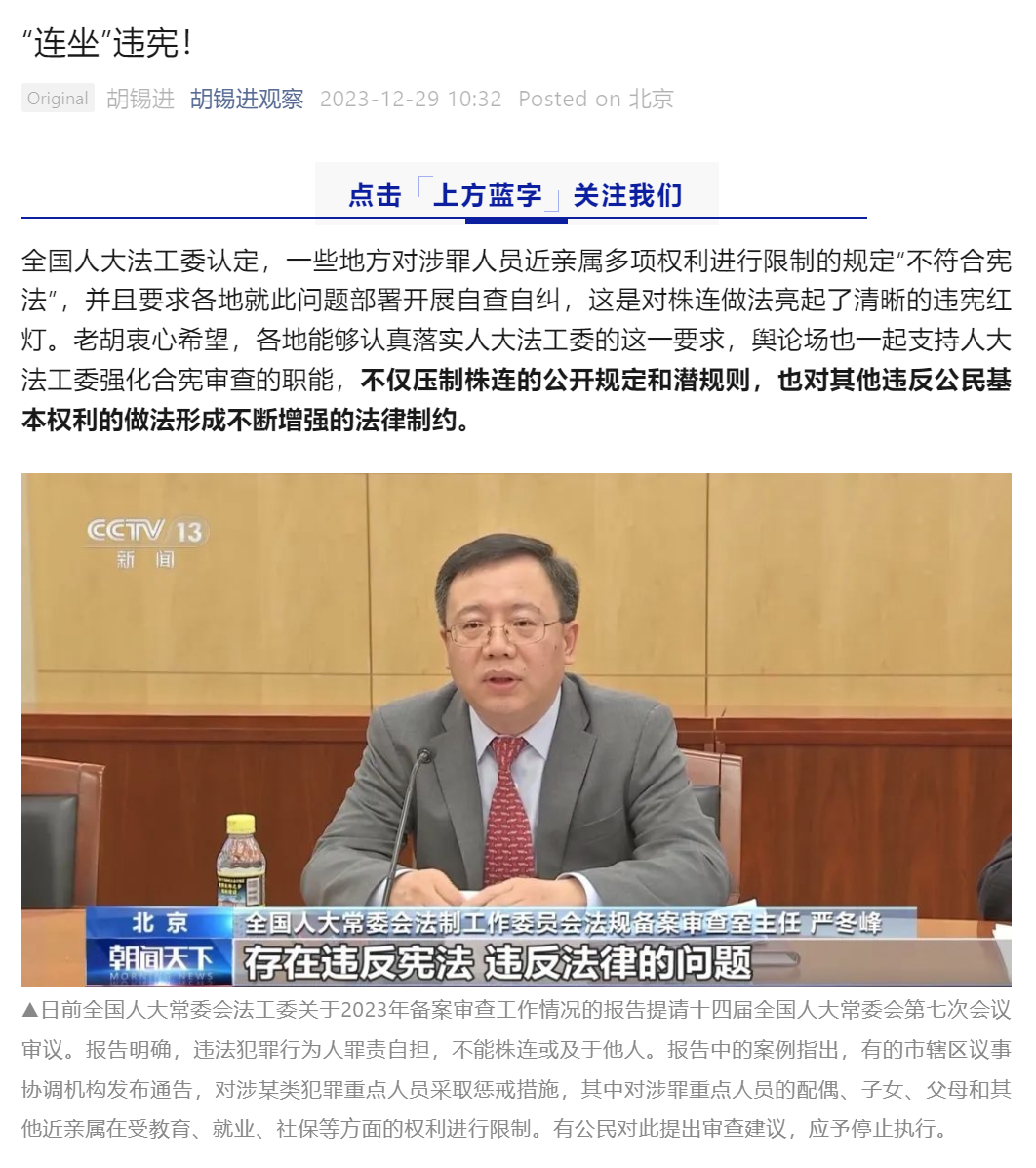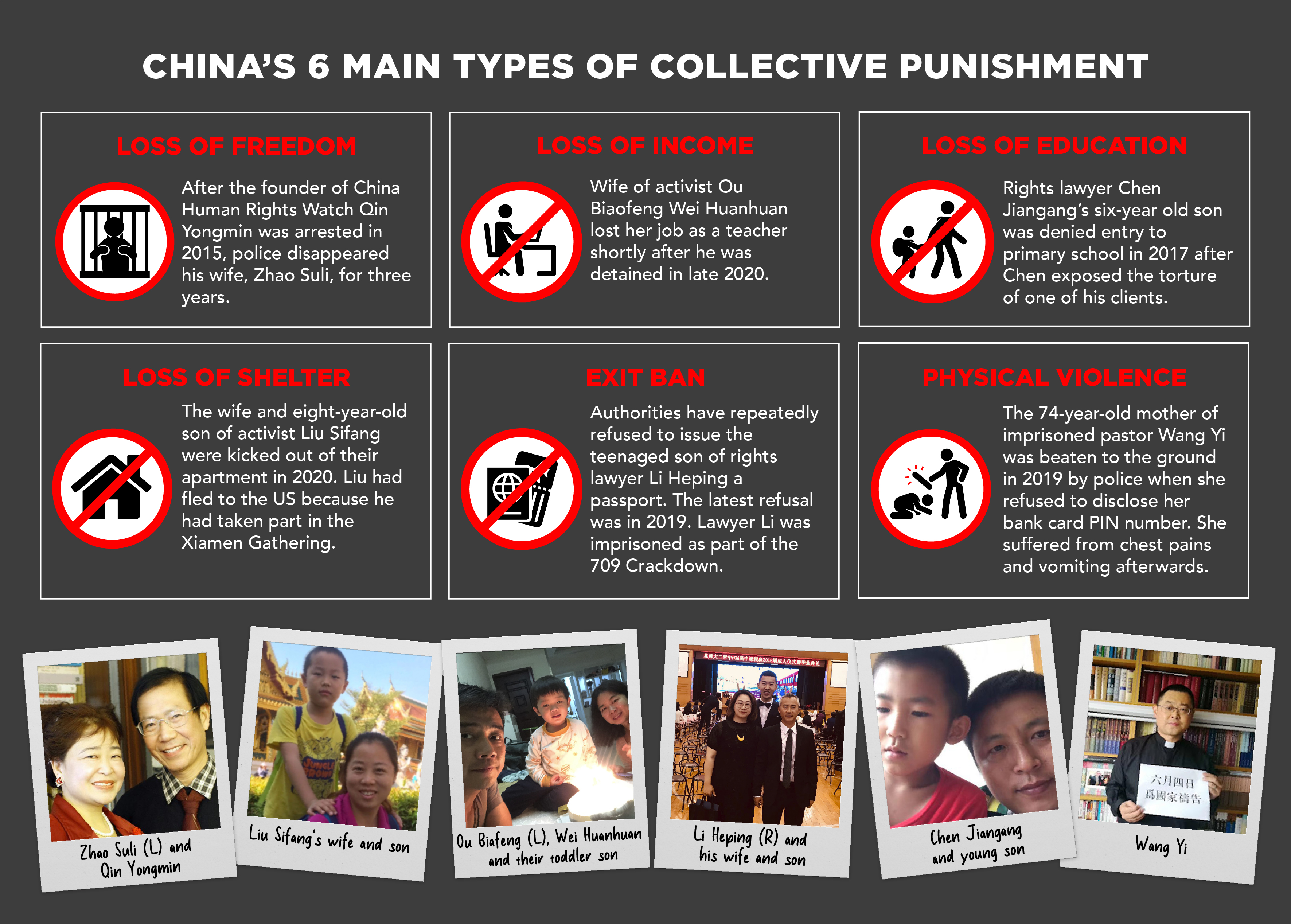China's top legislative body rebukes use of collective punishment
Shortly after Christmas, on December 26, China’s Legislative Affairs Commission (LAC) of the Standing Committee of the National People’s Congress issued a stunning rebuke to local government’s growing use of collective punishment (or "kin punishment” (连坐)) in the fight against telecom fraud. The LAC expressly states the measures to run counter to the PRC's Constitution.

This development follows attention to how local governments have been busily creating regulations to allow for the collective punishment of families and even communities in their campaign against Telecom Fraud, which reached a zenith last year with the promulgation of the national Law Against Telecom Network Fraud (反电信网络诈骗法).
Safeguard Defenders first drew attention to the widespread use of such collective punishment measures to assist local authorities' transnational policing efforts in the 2022 reports 110 Overseas and Patrol and Persuade, after the Ministry of Public Security publicly touted in August 2022 how they had successfully "persuaded" no less than 230,000 individuals to return to China (mainly from South-East Asian countries) within the ambit of the campaign.
"Persuasion to return" is one of the extra-judicial methods of alleged fugitives return outlined in the CCP's Central Commission for Discipline Inspection's Written Legal Interpretation to the 2018 National Supervision Law, and most often relies on pressure exercised on the alleged fugitive's family members in lieu of the actual target abroad in order to convince the latter to return "voluntarily". These tactics have been and are frequently being used against human rights defenders, dissidents and individuals belonging to ethnic and religious minorities such as the Uyghur diaspora.
But in a development reminiscent of the use of collective punishment in North Korea, our Fall 2022 reports uncovered the formalisation of such collective punishment measures on a much wider range of overseas targets by imposing penalties on the target’s kids, parents, extended family, and even wider community. Some of the regulated punishments we found are:
- suspension of family members’ eligibility for healthcare subsidies;
- placement of limitations on their family members’ banking use;
- barring them from obtaining bank loans;
- denying their children access to schools;
- banning their family members from public-sector employment.
The issue garnered further attention in December 2023 with the release of our report Families In Fear – Collective Punishment in 21st Century China (Chinese edition here). This extensive report provides an analytical overview - combined with first-hand victim accounts - of the targeting of human rights defenders inside China with collective punishment measures outside the scope of any law or regulation; a practice that has seemingly increased in both scope and severity since the beginning of Xi Jinping’s second mandate.
On December 29, State- and Party media started reporting on the Legal Affairs Commission stunning rebuke of the practice by local governments in relation to Telecom Fraud, ranging from a full CCTV 13 newscast to various local State and/or Party media. Former Global Times editor-in-chief Hu Xijin (胡锡进) posted about it on his Weixin account.

Interestingly, Hu has previously served as the government’s main attack dog against Safeguard Defenders’ exposé of this very practice in its 110 Overseas and Patrol and Persuade reports.
As reported by NPC Observer, which monitors the work of the National People’s Congress, the LAC's review process began after multiple citizens' complaints, leading the body to the following conclusion:
Under the NPCSC’s “recording and review” (R&R) (备案审查) process, its Legislative Affairs Commission (LAC) reviews the constitutionality of legislation and other official documents at the request of Chinese citizens. In this case, the LAC sided with the challengers. In its annual report on R&R to the NPCSC this week, the LAC disclosed the following conclusion:
After study, we believe that any legal responsibility for unlawful or criminal conduct must rest with the perpetrator him or herself, and must not be extended or attributed to others; such is one of the fundamental tenets of modern rule of law. By restricting multiple rights of the family members of those involved in crimes, the relevant circulars violated the principle of bearing responsibility solely for one’s own crimes, were inconsistent with the principles and spirits of the provisions in Chapter II of the Constitution concerning “citizens’ fundamental rights and obligations,” and were inconsistent with the principles and spirits of national laws and regulations governing matters such as education, employment, and social insurance.
This major development is a most welcome change in pace, which hopefully sends a clear message to local governments as well as law enforcement. While there are important caveats to the decision - in particular the limited scope of the decision which only covers local government's anti-Telecom Fraud campaigns and the fact that the LAC itself does not have the authority to revoke any law or regulation (it stated in its report that it is working with relevant departments to rectify the situation) -, the ruling of "unconstitutionality" should encourage democratic States to continue applying pressure on the Chinese Government to immediately revoke all measures of collective punishment against human rights defenders, dissidents and members of ethnic and religious minorities, starting from China's upcoming Universal Periodic Review.
For more details on the process itself, see NPC observers’ analysis.
